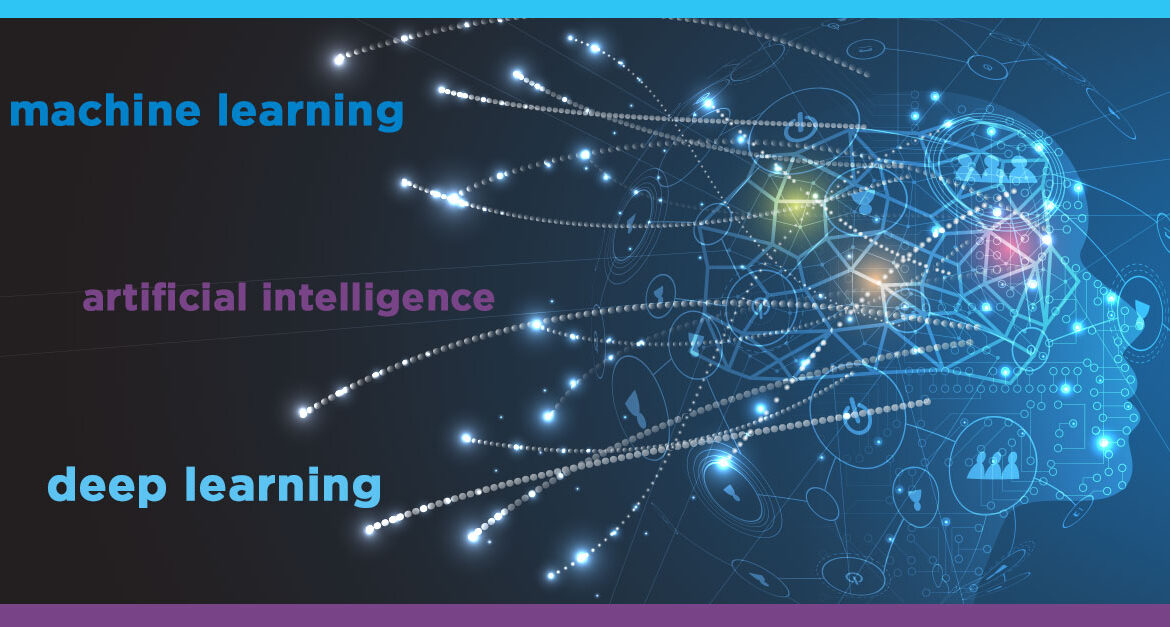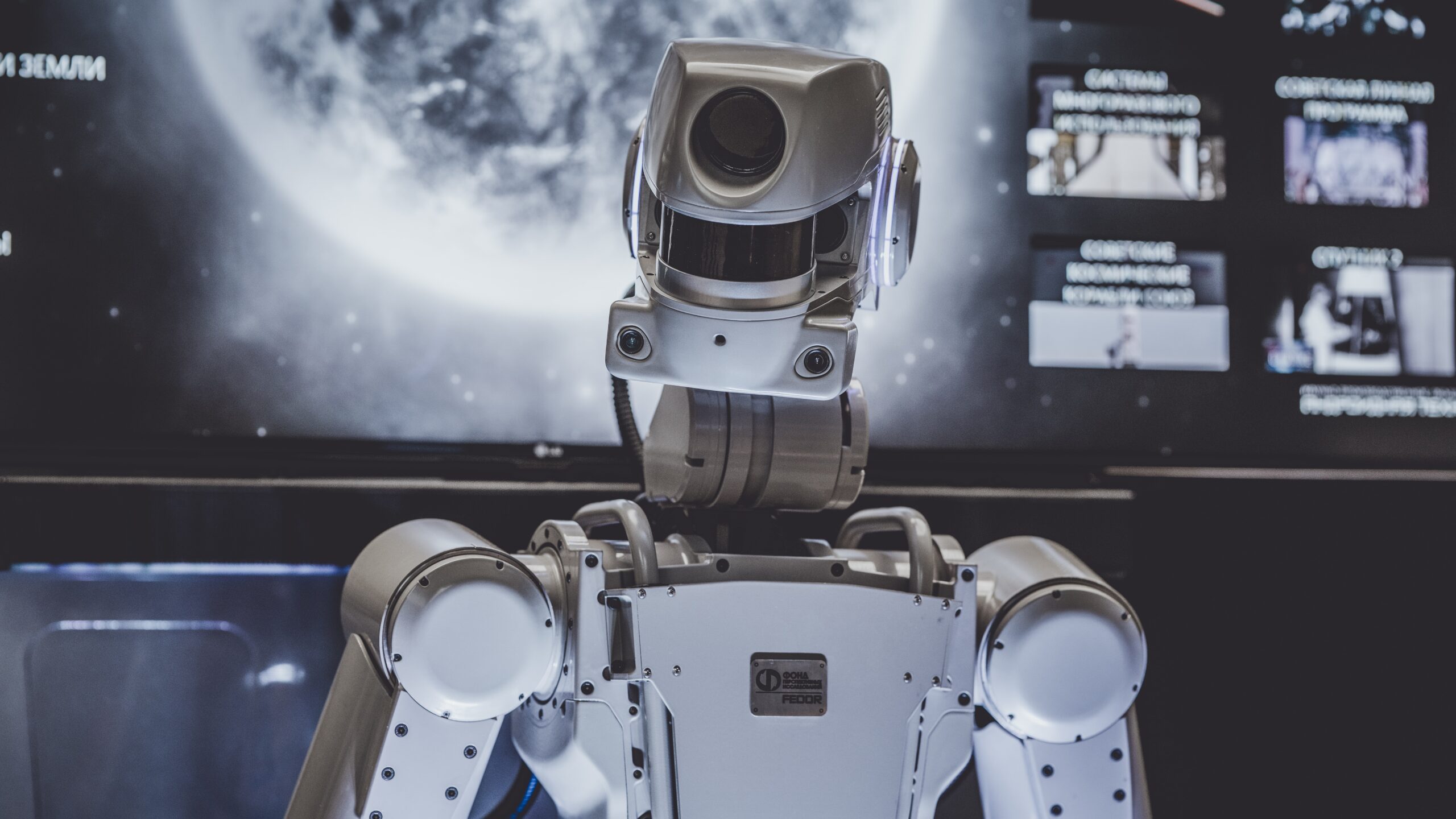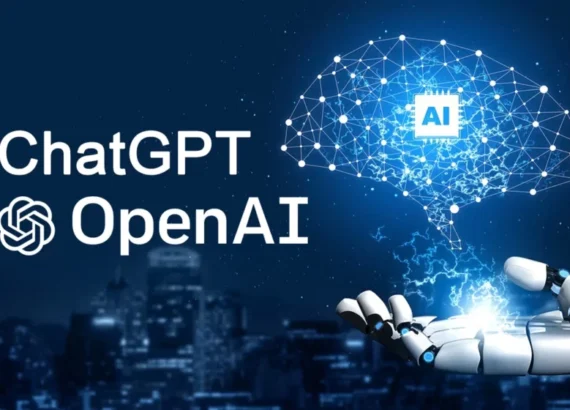What is Artificial Intelligence and its future scope?

What is Artificial Intelligence and its future scope?
Artificial Intelligence (AI) is a field of computer science that focuses on the development of machines and systems capable of performing tasks that typically require human intelligence. From voice assistants and self-driving cars to recommendation systems and medical diagnostics, AI has become an integral part of our daily lives. This article explores the fundamentals of Artificial Intelligence, its various applications across industries, the advancements made in the field, and the ethical considerations and challenges that arise with its rapid growth. Additionally, we will delve into the impact of AI on industries and the job market, as well as its role in shaping our everyday lives. Finally, we will discuss the future scope of Artificial Intelligence and the exciting possibilities it holds for the advancement of technology.
1. Introduction to Artificial Intelligence
What is Artificial Intelligence?
Artificial Intelligence, also known as AI, is a fascinating field of computer science that focuses on creating intelligent machines that can perform tasks that would typically require human intelligence. In other words, AI aims to develop computer systems that can mimic or simulate human intelligence, enabling them to understand, analyze, and respond to complex data.
A Brief History of Artificial Intelligence
The concept of artificial intelligence dates back to ancient times when philosophers and inventors contemplated the idea of creating autonomous machines. However, it wasn’t until the 20th century that significant progress began to take place. The term “artificial intelligence” was used in 1956 at Dartmouth College. Since then, AI has evolved through several stages, experiencing both breakthroughs and setbacks. From rule-based systems to machine learning algorithms, AI has come a long way and continues to shape the future of technology.

2. The Basics of Artificial Intelligence
Types of Artificial Intelligence
There are two types: First is Narrow AI and second is General AI. Narrow AI, also known as weak AI, focuses on specific tasks and is designed to excel in a limited domain. Examples of narrow AI include voice assistants like Siri and Alexa, recommendation systems, and image recognition software. On the other hand, General AI, also known as strong AI, aims to replicate human-like intelligence capable of understanding and performing any cognitive task. However, General AI is still largely a concept and remains an ambitious goal for researchers and scientists.
Machine Learning and Deep Learning
Machine Learning (ML) is a subfield of AI that focuses on developing algorithms and models that enable computers to learn and make predictions or decisions without being explicitly programmed. ML algorithms learn from data, identify patterns, and make predictions or take actions based on the information they have been trained on. Deep Learning is a subset of ML that utilizes artificial neural networks to simulate the learning process of the human brain. This enables deep learning models to perform complex tasks such as image and speech recognition, natural language processing, and autonomous driving.
Natural Language Processing
Natural Language Processing (NLP) enables computers to understand and interpret human language in the form of written text or spoken words. NLP powers applications like virtual assistants, language translation, sentiment analysis, and chatbots. Through NLP, computers can derive meaning from human language, making it easier for us to communicate with machines more naturally and intuitively.

3. Applications of Artificial Intelligence
Robotics and Automation
One of the prominent applications of AI is in robotics and automation. They are used in manufacturing industries, healthcare, agriculture, and even space exploration. From assembly lines to surgical procedures, AI-powered robots are revolutionizing various industries.
Virtual Assistants
Virtual assistants, like Siri, Google Assistant, and Alexa, have become an integral part of our daily lives. These AI-powered assistants use natural language processing to understand and respond to our commands, helping us with tasks such as setting reminders, making calls, playing music, and providing information. They have made our lives more convenient and efficient, acting as personal assistants at our beck and call.
Healthcare and Medicine
AI has the potential to transform the healthcare industry by enhancing diagnosis, treatment, and patient care. Machine learning algorithms can analyze vast amounts of medical data and assist in diagnosing diseases, predicting patient outcomes, and recommending personalized treatment plans. AI-powered tools also facilitate remote patient monitoring, drug discovery, and medical imaging analysis.
Finance and Banking
In the world of finance, AI plays a crucial role in fraud detection, risk assessment, algorithmic trading, and customer service. AI-powered chatbots can provide customers with instant support and personalized recommendations, while machine learning algorithms can analyze financial data to identify patterns and make accurate predictions. AI has streamlined many financial processes and improved the efficiency and accuracy of decision-making.

4. Advancements and Future Scope of Artificial Intelligence
Current State of Artificial Intelligence
Artificial Intelligence has made significant advancements in recent years, thanks to the availability of vast amounts of data, improved computing power, and breakthroughs in machine learning and deep learning techniques. AI is already being used in various industries and applications, driving innovation and shaping the future of technology.
Emerging Technologies in AI
Several emerging technologies hold great promise for the future of AI. These include reinforcement learning, which enables AI systems to learn through trial and error; Explainable AI, which aims to make AI algorithms more transparent and interpretable; and Quantum Computing, which has the potential to exponentially increase computational power and revolutionize AI capabilities.
Predictions for the Future of AI
While the future of AI holds immense possibilities, it is important to approach it with cautious optimism. As AI continues to evolve, there are concerns about its ethical implications, job displacement, and potential biases in algorithms. It is crucial to ensure responsible development and deployment of AI to maximize its benefits and minimize its risks. With the right balance, AI has the potential to revolutionize industries, improve human lives, and pave the way for a future where man and machine work harmoniously together.
5. Challenges and Ethical Considerations in Artificial Intelligence
Privacy and Security Concerns
As AI becomes more integrated into various aspects of our lives, concerns about privacy and security emerge. AI systems often process vast amounts of personal data, which raises questions about data protection and how this information is used. Additionally, the increasing sophistication of AI technology also means that it can be exploited for malicious purposes, such as deepfake videos or cyberattacks. Safeguarding privacy and ensuring the security of AI systems is vital.
Ethical Decision-making in AI
Artificial intelligence poses complex ethical dilemmas. For instance, autonomous vehicles need to make split-second decisions that could have life-or-death consequences. How should AI be programmed to prioritize human lives? Ethical frameworks and guidelines must be developed to grapple with these moral quandaries and ensure that AI systems align with human values.

6. Impact of Artificial Intelligence on Industries and Job Market
AI and Automation in the Workplace
Artificial intelligence and automation have the potential to transform industries by streamlining processes and increasing efficiency. Tasks that were once done manually can now be automated, freeing up human workers to focus on more complex and creative endeavors. However, this also raises concerns about job displacement and the need for reskilling to adapt to the changing job market.
Job Displacement and Reskilling
This can lead to job displacement and economic upheaval. Governments, organizations, and individuals must prioritize reskilling and upskilling initiatives to ensure workers are equipped with the necessary skills to thrive in the AI-driven job market. By embracing lifelong learning and adapting to new technologies, individuals can stay ahead of the curve.
Opportunities and Transformations in Industries
While AI may disrupt certain job sectors, it also opens up new opportunities and transformations in other industries. AI-driven data analysis is helping businesses make more informed decisions and drive innovation. Understanding and harnessing these opportunities can lead to significant advancements across various sectors.
7. The Role of Artificial Intelligence in Everyday Life
AI in Smart Homes and IoT
Artificial intelligence is increasingly present in our daily lives through the integration of AI-powered devices in smart homes and the Internet of Things (IoT). From voice-controlled virtual assistants to smart thermostats that learn our preferences, AI technology is making our homes more convenient and responsive. It’s like having a savvy, helpful roommate who never complains about doing the dishes.
AI in Entertainment and Gaming
Artificial intelligence has also made its way into the realm of entertainment and gaming. AI algorithms are used to create immersive virtual environments, generate realistic characters, and even enhance gameplay through adaptive difficulty levels. Whether you’re battling virtual dragons or binge-watching your favorite series, AI is there to add a touch of magic and entertainment to your life.
AI in Transportation and Travel
From self-driving cars to AI-powered traffic optimization, artificial intelligence is revolutionizing the way we move and travel. Autonomous vehicles promise to make commuting safer and more efficient, while AI algorithms help us navigate traffic and find the fastest routes. AI-enabled translation tools also make it easier to communicate and explore new destinations. So, buckle up and enjoy the ride with AI as your trusty co-pilot.

8. The Future of Artificial Intelligence
Artificial intelligence is becoming increasingly integrated into our daily lives, transforming industries, and shaping the job market. However, there are significant challenges and ethical considerations that need to be addressed, such as bias, privacy, and ethical decision-making. By understanding these considerations and harnessing the potential of AI responsibly, we can create a future where humans and intelligent machines work hand in hand to unlock new possibilities. So, let’s embrace the exciting opportunities and embark on this AI-powered journey with wit, wisdom, and a healthy dose of humor. After all, who said the future can’t be both intelligent and entertaining?
Conclusion
In conclusion, Artificial Intelligence has already made significant strides and has become an indispensable part of our modern world. With further advancements in technology and research, the future of AI looks promising. However, it is crucial to address the ethical concerns and ensure fairness, transparency, and responsible use of AI. As AI continues to evolve, it will undoubtedly revolutionize industries, transform the job market, and play a crucial role in shaping our everyday lives. Embracing the potential of AI while addressing its challenges will be key to harnessing its full potential and creating a future where humans and machines coexist harmoniously.
FAQs
1. What is the difference between Artificial Intelligence and Machine Learning?
Artificial Intelligence (AI) is a broader field of computer science that focuses on creating intelligent machines capable of performing tasks that typically require human intelligence. Machine Learning, on the other hand, is a subset of AI that involves training machines to learn from data and improve their performance over time without being explicitly programmed. While AI encompasses various techniques and approaches, Machine Learning is a specific approach within the AI domain.
2. How is Artificial Intelligence being used in industries today?
Artificial Intelligence has found its application across various industries. In healthcare, AI is being used for medical image analysis, diagnosis, and drug discovery. In finance, AI is used for fraud detection, algorithmic trading, and personalized financial services. AI is also being utilized in manufacturing and robotics for process automation and quality control. Additionally, AI powers virtual assistants, recommendation systems, and smart home technologies, enhancing our everyday lives.
3. What are some ethical considerations associated with Artificial Intelligence?
Ethical considerations in AI include issues such as bias in algorithms, privacy concerns, and the impact on jobs and society. AI algorithms can perpetuate biases inherent in training data, leading to unfair outcomes. The impact of AI on the job market, with automation potentially displacing specific roles, is also a significant concern. It is important to address these ethical considerations to ensure the responsible and ethical development and deployment of AI technologies.
4. What does the future hold for Artificial Intelligence?
The future of Artificial Intelligence is promising. Advancements in technologies like Deep Learning, Reinforcement Learning, and Natural Language Processing are paving the way for more sophisticated AI systems. AI is expected to significantly impact various sectors, including healthcare, transportation, education, and entertainment. However, the future also raises questions about the ethical and societal implications of AI, which need to be carefully considered and addressed to maximize its benefits for humanity.
Thank you for reading 🙂












